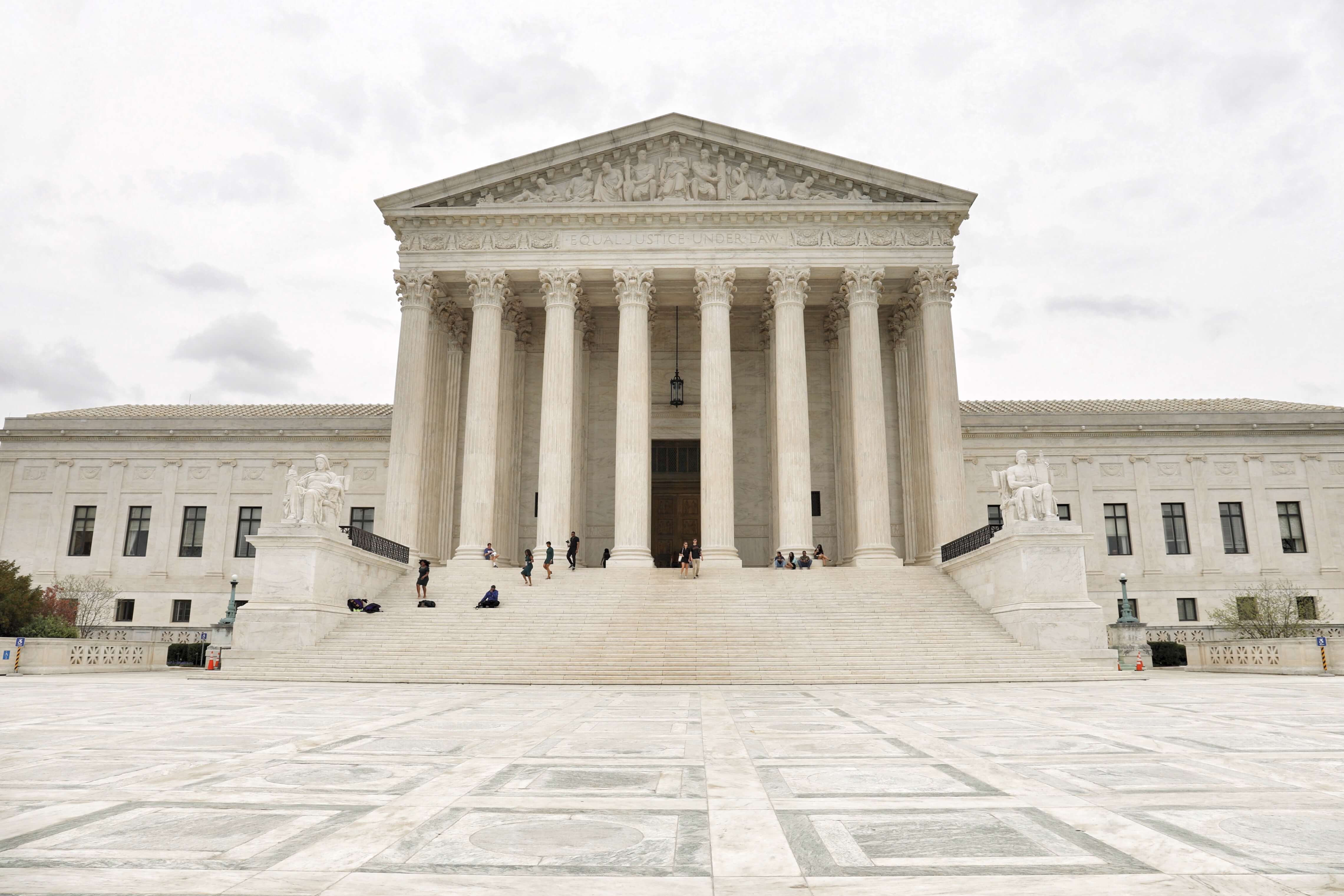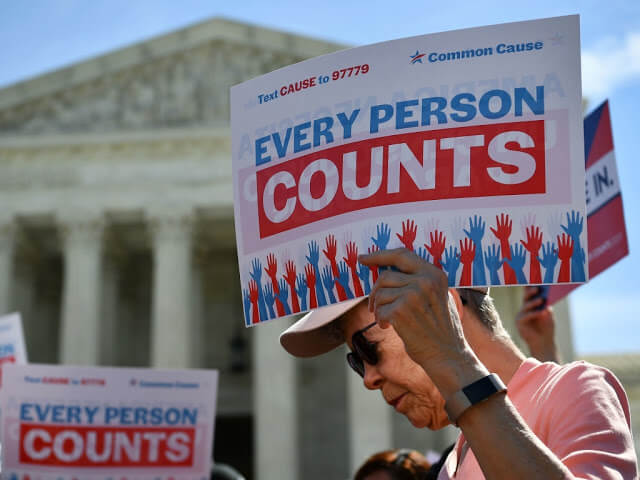On June 29, 2019, the Supreme Court announced their decision to stop the citizenship question from appearing on the 2020 Census. So does this mean that Census outreach efforts are done? No. Instead, this is a crucial time for outreach efforts to be implemented. As Letitia James, the attorney general of New York and one of the plaintiffs suing to block the question, stated, “Now is the time to shift gears and begin robust education and outreach campaigns to ensure each person in this country is counted (1).”
History of the Question and Its Journey to the Supreme Court
In 2018, Secretary of Commerce Wilbur Ross initiated a request to reinstate the citizenship question on the upcoming Census, purporting that citizenship data would help enforce the Voting Rights Act. Coalitions of states, cities, and counties challenged this decision, resulting in the Dept. of Commerce v. New York suit. Although the citizenship question, which asks individuals if they are citizens or not, has appeared on previous censuses, it has not appeared on most Census questionnaires since 1950.
The United States District Court for the Southern District of New York issued a ruling stating that Ross had violated the Administrative Procedure Act (APA) when he approved the addition of the citizenship question. Shortly after, the U.S. Department of Justice appealed to the U.S. Supreme Court requesting that an appellate court decision be bypassed so that a ruling would be issued before the 2020 Census. The Supreme Court agreed to hear the case in February 2019 (2).
After four months, the Supreme Court held that although the Department of Commerce did not violate any clauses in attempting to reinstate the question, the evidence demonstrated that the decision to add the question was contrived. The court stated that Ross’ explanation for implementing the question — to better enforce the voting rights laws — did not match what the evidence showed. In a concurring opinion, several justices argued that the question would result in lower response rates for noncitizen households, causing these communities to be undercounted and to lose federal funds (3).

What Asking the Citizenship Question Would Have Entailed
Although seemingly innocuous, the implementation of the citizenship question likely would have posed a threat to an accurate count. In fact, due to the hostile climate around immgration policy, it could have led to an undercount of 6 million Hispanics, according to a study conducted by Harvard’s Shorenstein Center on Media, Politics, and Public Policy. The undercount would subsequently cause these communities to lose approximately $120 billion in public funds, as well as political power. Moreover, Arizona, California, Florida, Illinois, New York, and Texas could have potentially lost seats in the House as a result of the question (3).
The question would have also undermined outreach efforts toward hard-to-count communities, which were put in place specifically because undercounts of minority groups have been a historic problem. But the implications don’t stop there. Undercounts are also costly to the Census Bureau. When households don’t self-report their surveys, the Census will send workers to conduct in-person interviews. This would drive up costs by millions of dollars, despite the Census Bureau’s already constrained budget (4).
Donald Trump’s Response to the Supreme Court Decision
The Supreme Court’s decision to block the citizenship question from appearing on the 2020 Census made it extremely challenging for the Trump administration to continue to pursue the effort. Despite several attempts and reframing of their case in the days that followed the decision, the logistical challenges were too high to surmount, leaving the administration to explore alternative methods of collecting citizenship data.
Shortly after the decision was announced, Trump stated that he would “leave no stone unturned” in terms of collecting data about citizenship (5). The same day, he signed an executive order requiring federal agencies to provide all requested records on the number of citizens and noncitizens in the country to the Department of Commerce.

Title 13 and The Importance of Data Protection
With all of the focus on the potential impacts of the collection of citizenship data, it is imperative to highlight the importance of Title 13 and how protection of data is codified in federal law. Title 13 of the United States Code strictly prohibits the Census Bureau, the Department of Commerce, and their employees from sharing personally identifiable data to federal agencies, immigration authorities, courts of law, and law enforcement. If anyone wrongfully discloses the data, they may be punished with a fine of up to $250,000 or up to five years in federal prison. This law also states that the Census Bureau and other federal agencies are forbidden from using Census data for anything other than statistical analysis.
Trump’s executive order, which will be utilized to obtain citizenship information, is also bound to Title 13 restrictions. In it, he states that “generating accurate data concerning the total number of citizens, noncitizens, and illegal aliens in the country has nothing to do with enforcing immigration laws against particular individuals” and that “Under my [Trump’s] administration, the data confidentiality protection in Title 13 shall be fully respected.” So it is important to emphasize that the data collected through this executive order cannot be used for prosecutorial purposes.
How We Move Forward…
Undoubtedly, the ordeal of the citizenship question has eroded trust in the government, making Census outreach efforts crucial to a successful count in 2020. A New York Times article stated that “the public controversy over the issue has already stirred fears of retribution among many immigrants, who say they will avoid filling out the Census form even if the question is not asked” — thus highlighting the need for organizations and programs to reach historically hard-to-count communities.

So how do we move forward in order to ensure an accurate count? Firstly, it is critical to implement educational campaigns around the role of the Census. That way, the public — especially hard-to-count communities — become aware of the benefits that come from filling out the Census (federal funds, political representation, etc.). Following this, we must disseminate information about the Supreme Court’s decision to block the question so that immigrant and minority communities know that the citizenship will not be asked. It is also crucial to discuss the role of Title 13 so that respondents know that their data is protected.
The best way to help jeopardized communities is to leverage trusted messengers to educate individuals about the importance of the Census, dispel any misinformation, and activate them to complete their surveys.
Everybody Counts, So Everybody Should Be Counted
Overall, it is of utmost importance that complete count efforts are not undermined. The Census is responsible for numerous aspects of social and political life, so undercounts will have detrimental effects for counties, cities, and states. With an accurate count, we can build better roads, improve our schools, receive more political representation, and provide better communities for the future generation. We all count, so we should all be counted!
_______________________________
Citations
(1) Michael Wines, “2020 Census Won’t Have Citizenship Question as Trump Administration Drops Effort,” The New York TImes, https://www.nytimes.com/2019/07/02/us/trump-census-citizenship-question.html, (July 12. 2019)
(2) “Challenges to the citizenship question on 2020 U.S. Census,” BallotPedia, https://ballotpedia.org/Challenges_to_citizenship_question_on_2020_U.S._census, (July 16, 2019)
(3) The New York Times, “What You Need to Know About the Citizenship Question and the Census,” The New York Times, https://www.nytimes.com/2019/07/02/us/citizenship-question-census.html, (July 2, 2019)
(4) Ted Mellnik and Kate Rabinowitz, “Where a Citizenship Question Could Cause the Census to Miss Millions ofHispanics,” The Washington Post, https://www.washingtonpost.com/politics/2019/06/06/where-citizenship-question-could-cause-census-miss-millions-hispanics-why-thats-big-deal/?noredirect=on&utm_term=.f10d004cb2c9, (July 4, 2019)
(5) Rebecca Ballhaus and Brent Kendall, “Trump Drops Efforts to Put Citizenship Question on Census,” The Wall Street Journal, https://www.wsj.com/articles/trump-to-hold-news-conference-on-census-citizenship-question-11562845502, (July 11, 2019)

